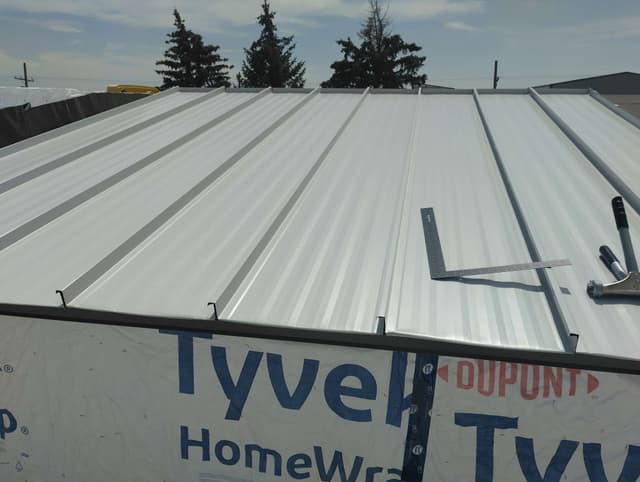Loading...
Preparing your SunSet Metal experience
Preparing your SunSet Metal experience
Loading profile page
Professional installation techniques for structural standing seam systems

Standing seam installation requires specialized equipment and training. Improper installation will void warranty and may result in system failure. Always use certified contractors experienced with seaming machines.
Electric or pneumatic seamer for field joints
Drill, bits, and appropriate fasteners
Suction cups, panel lifts for long panels
Chalk line, measuring tape, square
Metal shears, cutting blades for field cuts
Fall protection, hard hats, safety glasses
4-foot level, string line for alignment
Tarps and temporary covering materials
Used at panel centers for structural attachment
Allow thermal expansion and contraction
Enhanced clips for high snow load areas
Establish safe working conditions and prepare the roof structure.
Install proper underlayment and prepare deck for panel installation.
Position and install the clip system for thermal movement.
Install starter panel with precision for proper alignment.
Create weather-tight seams using proper seaming machine techniques.
Complete installation with proper ridge caps and penetration flashing.
Access technical manuals, training materials, and certification programs for professional standing seam installation.